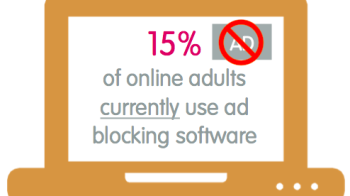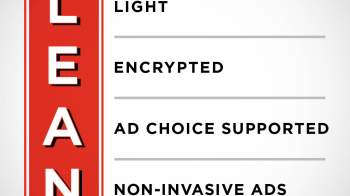IAB UK CEO Guy Phillipson gives his commentary on the questioned legality of employing ad blocker detection script
IAB Chief Executive, Guy Phillipson, gives his commentary on the questioned legality of employing ad blocker detection script, as IAB UK provides initial guidance to publishers.
Premium publishers in the UK offer quality content, supported by – most would argue – a good ad experience for their online readers. But ad blocking, of course, is indiscriminate, so it’s not surprising that news and lifestyle publishers in particular want to engage directly with ad blocker users on their sites.
The fact is that while consumers have the tools and the right to block ads, the publishers - whose content the readers still want for free - have every right to explain the important role of advertising and politely ask them to deactivate their blocker, or perhaps whitelist their site. Media owners across UK and Europe are already doing this with a fair degree of success, and many others are experimenting with different tech solutions.
So when Alexander Hanff declared at Ad Week Europe that employing detection script technically contravenes the ePrivacy Directive - because it involves placing a file on the user's computer - he took the widest interpretation of the so called "cookie law" and created some headlines in the trade press.
But let's just step back a bit and consider this. For a publisher to present a cookie notice, to comply with the law, Java script is used to render the consent banner. In fact media owners have to use script all the time, for example to detect whether the user is on a Smartphone or a laptop to render an optimised experience. Imagine if they had to ask the reader's permission every time! Of course this activity is perfectly legitimate for doing business and it can easily be argued that employing ad blocking detector script, falls into the same category. It's simply used to detect whether ads are displayed or not.
This technicality over the legality of detection script is just another discrepancy in the long list of questions surrounding the poorly drafted ePrivacy Directive. That's why the European Commission has called a review this year, and we'll have an opportunity to call for an amendment to cover this issue.
In the meantime we are looking into the legal situation, which is far from clear cut, in more detail. We believe that the question of whether permission needs to be sought to detect ad blockers – and therefore whether detection is legal – depends on the circumstances and we will be feeding the results of our analysis back to our members, once we have more clarity.
Topics
Related content
15% of Britons online are blocking ads
Learn moreAd blocking software - consumer usage and attitudes
Learn morePageFair and Adobe 2015 Ad Blocking Report
Learn moreIAB UK launches principles to address Ad Blocking
Learn more
Rediscover the joy of digital advertising
Champion connections instead of clicks. Capture audiences' imaginations, not just their attention. Boldly find your own beat instead of letting tech set the pace. It’s time to rediscover the joy of digital.



